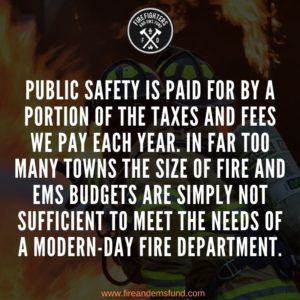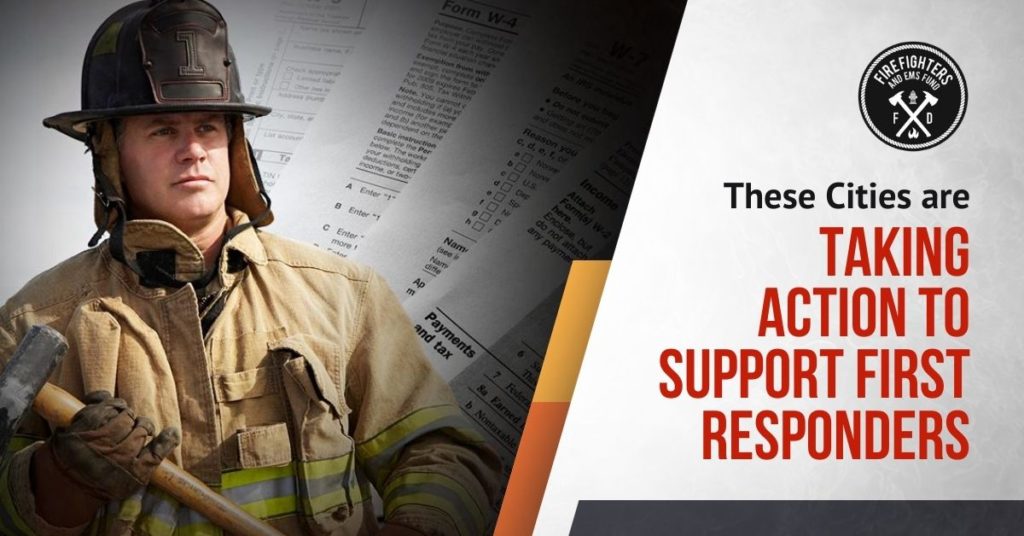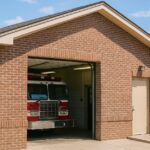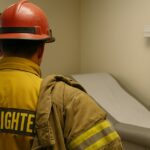Throughout the US the ways Americans pay for fire and EMS vary significantly. This variation is largely due to the unique statutes and regulations that states have in place to govern the collection of taxes and fees from residents. As we are all aware, public safety is paid for by a portion of the taxes and fees we pay each year. Notwithstanding, in far too many towns the size of fire and EMS budgets are simply not sufficient to meet the needs of a modern-day fire department.

Price tags are rising as new technologies designed to save lives- and do so more quickly are developed and brought to market. Since the average cost of single pumper trucks (which make up over 60% of the market) has grown by 15% over the last decade, prices can range anywhere from $100,000 for a used vehicle to nearly $1,000,000 for an optimally equipped ladder truck. SCBA’s, turnout gear, and wages and benefits are all things that add to the price tag of optimally equipping and staffing a fire department. When all is said and done, costs can grow to be astronomical.
Cities have done their share of mulling over this question for decades. Some have even come up with some pretty unique solutions. However, those that tend to have unique answers to this problem are those which are in states that take advantage of Home Rule tax structures or statutes that grant similar liberties to municipalities. With Home Rule, the decision of who to tax and how much to tax them is left to the towns themselves.
Special taxes have helped emergency services keep pace with the growth of some of America’s largest cities over the years. For example, Kansas City Missouri takes advantage of a dedicated sales tax to fund emergency services, while Los Angeles County has a parcel tax that applies to both residential and commercial property. One major benefit of the used in Kansas City is the ability to allow fire department budgets to grow in step with the economy and population. While the mechanism used in Los Angeles allows residents and businesses to shoulder the tax burden at different rates.
Does your town or city utilize a unique tax model to pay for emergency services? We want to hear about it! Contact our Executive Director at nile@fireandemsfund.com to share your story.
Like other national political nonprofits, Firefighters and EMS Fund is free to work anywhere in the United States. It is common to wonder, however, why a national organization would choose to focus its efforts on passing ballot measures that benefit local Emergency Medical Responders? Why should the average citizen be concerned with the needs of responders in other areas, when their own local agencies have unmet needs too? Find out here.








